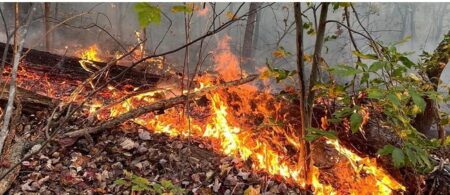HARRISBURG—The Pennsylvania Department of Environmental Protection is releasing a draft Environmental Justice Public Participation Policy which strengthens language on how DEP oversees and participates in environmental justice priorities and reform with community partners. The public comment period on the policy is open through Wednesday, May 11, 2022.
The Wolf Administration demonstrated its commitment to environmental justice when Gov. Tom Wolf signed an environmental justice executive order. That executive order strengthened the Wolf Administration’s resounding belief that all Pennsylvania communities are deserving of healthy environments, regardless of race, ethnicity, or income level.
The EJ Policy will help shape and guide DEP’s involvement in environmental justice areas. Since 2004, DEP and the Office of Environmental Justice (OEJ) have engaged with various stakeholders, including DEP staff, community residents and the Environmental Justice Advisory Board, to make sure a just and fair commitment to vulnerable communities is made.
“DEP has expanded its commitment to Environmental Justice in recent years, as shown in the extensive outreach that led to the draft Environmental Justice Policy currently being released for formal public comment. Though this draft policy is being released for public comment formally today, it was created with the guidance of community members through several outreach meetings over the last three years,” said DEP Secretary Patrick McDonnell.
DEP is also announcing the appointment of Justin Dula as the acting OEJ director. Dula, an environmental justice advocate, worked in OEJ as the eastern regional coordinator since 2018, and is the successor to former OEJ director Allison Acevedo, who departed from the role at the beginning of 2022. Dula was appointed to the role earlier this month and will dually function in the eastern regional coordinator position until a replacement is hired.
“I am honored to further efforts to meet the needs identified by communities facing environmental justice concerns in this new role,” said Dula. “I am excited to build on the increased outreach efforts to help continue to better understand community concerns and work to help move forward solutions.”
The EJ Policy includes several sections to expand and improve upon the existing Environmental Justice Public Participation Policy which has been in effect since 2004.
The current EJ Policy includes several sections:
General Information, which includes definitions, history and background, a description of DEP’s Office of Environmental Justice, and the Environmental Justice Advisory Board.
Description of the Permit Review Process and Community Input. This is the process for collecting additional public input for a list of particular permits.
Oil and Gas Public Engagement, which was a major need identified by community members.
Inspections, Compliance, and Enforcement guidance to expand the policy beyond public participation in the permitting process.
Climate Initiatives, which spells out ways that environmental justice can be included in DEP’s climate action plan and other efforts.
Opportunities for Community Development and Investments, which considers opportunities to financially assist communities facing environmental justice issues.
Policy Updates, which specifies that the policy should be reviewed for updates regularly to ensure that the policy continues to address community concerns.
DEP will hold three virtual public hearings for the purpose of accepting comments on the Draft Environmental Justice Policy. The hearings will be held as follows:
Tuesday, April 5, 2022, at 5:00 PM.
Audio conference: +1-415-655-0003, Access code: 2630 690 8427
Tuesday, April 12, 2022, at 6:00 PM.
Audio conference: +1-415-655-0003, Access code: 2633 346 6724
Thursday, April 28, 2022, from 12:00 PM.
Audio conference: +1-415-655-0003, Access code: 2633 980 7600
Persons wishing to present testimony at a hearing must contact Glenda Davidson, (717) 783-4759 or [email protected], at least 24 hours in advance, to reserve a time to present testimony. Language interpretation services are available upon request. Persons in need of language interpretation services must contact Davidson at [email protected] or at (717) 783-4759 at least one week in advance.
Verbal testimony is limited to 5 minutes for each person. Organizations are limited to designating one person to present testimony on their behalf at one hearing. The hearings will be held through WebEx. People may provide testimony by means of telephone or WebEx teleconference. Video demonstrations and screen sharing by those presenting testimony will not be permitted.
Members of the public wishing to observe a virtual public hearing without providing testimony are able to view these hearings using the links above. Those who have not registered in advance as described previously will remain muted for the duration of the public hearing.
Persons in need of accommodations as provided for in the Americans with Disabilities Act of 1990 should contact the Board at (717) 787-4526 or through the Pennsylvania Hamilton Relay Service at (800) 654-5984 (TDD) or (800) 654-5988 (voice users) to discuss how the Board may accommodate their needs.
Written Comments: For submitting written comments, commenters are encouraged to submit comments using DEP’s online eComment tool at https://www.ahs.dep.pa.gov/eComment/ or by e-mail to [email protected]. Written comments may be mailed to the Technical Guidance Coordinator, Pennsylvania Department of Environmental Protection, Policy Office, Rachel Carson State Office Building, P.O. Box 2063, Harrisburg, PA 17105-2063.






















